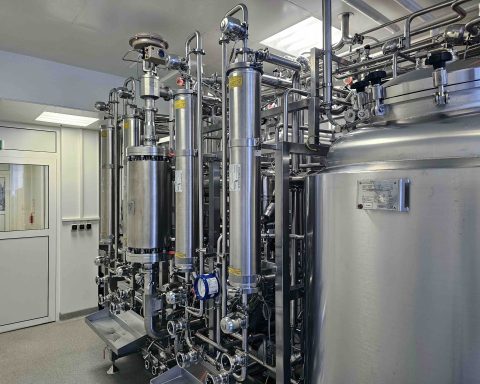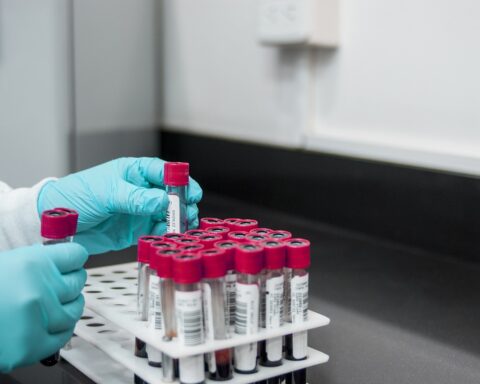The pharmaceutical industry is constantly shifting, as consumers seek the best treatments. As the market demands new solutions, drugmakers are tasked with investing heavily in research, development, manufacturing and commercialization. Meeting the needs of the sector can be challenging, especially for companies that don’t have the necessary resources. Contract Development and Manufacturing Organizations (CDMOs) offer practical solutions.
CDMOs, which originally only acted as service providers, have become integral in driving innovation in the pharmaceutical industry. These specialized entities provide a host of services that range from drug development to commercial manufacturing. By capitalizing on their infrastructure, expertise and advanced technology, CDMOs are not only optimizing drug development processes but enabling pharmaceutical companies to push the boundaries of scientific research and commercialization as well.
Expertise and Specialized Knowledge
One of the ways CDMOs contribute to innovation is through their specialized knowledge and expertise. The pharmaceutical industry is immensely complex, with drug development involving intricate processes. A drug must pass pre-clinical research, clinical trials and finally go into commercial production. Each of these areas require specialized skills. Finding all the competencies needed in-house means footing an astronomical payroll. Even then, a manufacturer can’t be certain of having everything.
CDMO pharmaceuticals are knowledgeable in various fields, including formulation development. With a partner providing the necessary capabilities, drug manufacturing doesn’t take as long as it used to. Therefore, companies reduce the time it takes to put products on shelves. Partnering with CDMOs eliminates the need for a pharmaceutical company to invest in cutting-edge technologies and specialized skills. It also means manufacturers can stay ahead of the curve by delivering high-quality drugs to patients without hurting their bottom line.
Improving Drug Development
A pharmaceutical product passes through several stages before it reaches manufacturing and finally commercialisation. CDMOs are effective in streamlining these processes. They create solutions specific to a particular partner because no one formula works for all. A CDMO taps into its expertise to optimise drug development to satisfy production demands while maintaining the required quality standards. It can assess processes and decrease or remove complexities, allowing for a smooth transition from development to production.
Supporting Biopharmaceutical Innovation
Biopharmaceuticals is a rapidly growing sector as the demand for bio-based treatments rises with time. Offering alternatives to synthetic drugs, biopharmaceuticals are invaluable to the industry. They are shaping the future of personalized medicine. Unfortunately, developing a successful biopharmaceutical product comes with a lot of pains. The technological and operational complexities makes this area costly and high risk for manufacturers. Companies require advanced infrastructure, bioengineering expertise and cutting-edge to manufacture bio-based drugs at an industrial level. CDMOs come to the rescue with pre-existing resources. They have scientists experienced in biopharmaceuticals, state-of-the-art facilities and skilled professionals for every stage of the development process. By outsourcing to a CDMO, a biopharmaceutical company saves time and money, while still getting the chance to explore new research avenues.
Reducing Costs and Risks
CDMOs contribute to innovation by helping pharmaceutical partners manage costs and mitigate risks. Drug development is inherently risky and expensive, with high rates of failure and considerable investments required. Regardless of the substantial financial commitment a company makes, nothing guarantees that a drug will be successful. Outsourcing development and manufacturing processes to CDMOs helps pharmaceutical enterprises curb capital expenditures and operational costs. Risk sharing is another avenue for driving innovation pharmaceutical manufacturing. Collaboration between CDMOs and drugmakers allows both parties to spread their risk. As mentioned, clinical and commercial success is not always guaranteed, which is why the industry is traditionally risk-averse. Strategic partnerships allow the stakeholders to share risks and rewards. In the past few years, the sector has experienced a rise in penalty-based deals. Good performance earns bonuses, which incentivizes CDMOs to excel. The harder these organizations work, the further the industry grows.
A CDMO will customise solutions to meet a company’s requirements, preventing it from paying for more than it has to. By scaling production volumes according to demand, manufacturers manage financial risks. Moreover, by leveraging CDMOs’ expertise and infrastructure, pharmaceutical firms can channel their resources to core activities, such as research and development, while entrusting their partners with efficient and cost-effective manufacturing.
Expanding Global Reach and Market Access
As pharmaceutical manufacturers seek out new markets globally, CDMOs are crucial in facilitating access. They also help companies comply with international regulations. CDMOs develop a global network of facilities and regulatory expertise, which come in handy when a pharmaceutical enterprise needs to navigate the complex international markets.
Take CDMOs with facilities in multiple regions, for example. They have the means to support global clinical trials and offer localized manufacturing solutions. A company looking to broach new markets or respond to regional demand will find this advantageous. Another plus point is that a CDMO’s knowledge of regulatory guidelines in different countries will help a manufacturer deliver products that meet local standards.
CDMOs are driving innovation in the pharmaceutical industry by adopting advanced manufacturing technologies, offering expertise and enhancing drug development processes. They play a pivotal role in advancing new therapies, improving manufacturing efficiency, and helping pharmaceutical companies bring innovative treatments to market more effectively.








